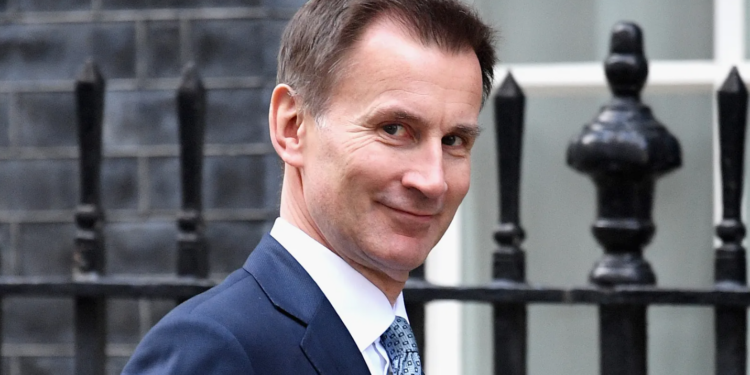Government “groupthink” meant it only planned for an influenza pandemic that would “inevitably spread like wildfire” and failed to recognise that early quarantine would have stopped Covid in its tracks, Jeremy Hunt said today. According to the Mail, the former Health Secretary told the Inquiry.
I know you may well want to talk about the issue of groupthink, but I think this was the first example.
Looking back with the benefit of hindsight – this was not what I thought at the time and I, with retrospect of course – I wish I had challenged at the time.
But there were no questions asked at any stage as to how do we stop it getting to the stage of 200,000-400,000 fatalities.
It was an assumption that if there was pandemic flu, it would spread, using layman’s terms like wildfire, and you pretty much couldn’t stop it. …
There was quite a lot of thinking but I think, looking back on it, it is very clear that it was very deeply entrenched, almost visibly in every single document relating to this, that you can see that there was an assumption that a mass fatality pandemic would be flu.
I think you’re going to come on and talk about Exercise Alice, which I wasn’t briefed about, which itself is telling. I was asked to take part in Exercise Cygnus.
But I think it is just interesting when you look at that, that the report on Exercise Alice is the only place that I can find which really talks about the importance of quarantining.
And if you look at this assumption that you can’t stop the spread of the virus, I think that was deeply entrenched when Covid arrived and we didn’t look at countries like South Korea and Taiwan, which had a very different assumption about the effectiveness of quarantining.
The fundamental issue was that we were — and by the way not just us, across western Europe and North America — there was a shared assumption that herd immunity was inevitably going to be the only way you could contain a virus because it spread like wildfire.
Hunt, who was Health Secretary from 2012 to 2018, added that the U.K. actually topped league tables of preparedness for pandemics.
Johns Hopkins University in America said that the U.K. was the second best prepared country in the world in the global health security index in 2019.
They had subcategories and one of their subcategories was which countries were best prepared for preventing the spread of a virus and scaling up treatment quickly, and we were top. We weren’t second best, we were top.
And so there was I think a completely wrong assumption and I think the truth is we were very well prepared for pandemic flu because we had put a lot of thinking into it. Exercise Cygnus was a huge thing.
But we hadn’t given nearly enough thought to other types of pandemic that might emerge and that was, with the benefit of hindsight, a wholly mistaken assumption.
Hunt claimed that early quarantine would have stopped Covid in its tracks:
If there was one thing that could have slowed the progress of Covid when it actually arrived, it was to understand the importance of early quarantining to stop the disease spreading, and to understand there are types of pandemic where it is worth putting a massive amount of effort into slowing the spread.
One of the very first [questions] we should have been asking ourselves is, ‘is this one of those pandemics that you can actually slow and save lives early on or not?’ And I don’t think we had asked those questions.
How is the myth that South Korea somehow nipped the virus in the bud by being ace at Test and Trace still being repeated in 2023? It only takes a quick look at the data for the region to see that South Korea had no better outcomes in 2020 than the surrounding countries, which were not known for their quarantine prowess, and in the case of Japan did very little by way of countermeasures. Presumably South Korea’s contact tracing was so hot it kept the virus under control in Japan, Malaysia, Singapore and Thailand as well.
South Korea also did not fare well when Omicron showed up in 2022 – a variant which affected the region much more strongly than previous variants. Where was the quarantine effect then?
Once again we find myths from the early days of Covid still being repeated unchallenged by senior figures at the public inquiry. How will the right lessons be learned if they can’t even get the facts right?














To join in with the discussion please make a donation to The Daily Sceptic.
Profanity and abuse will be removed and may lead to a permanent ban.
Snake-infested jungle and snake-infested geopolitics.
Stock up on silicon chips and microprocessors.
Good article on “The Federalist” web site on three possible ways CCP could strike Taiwan.
https://thefederalist.com/2025/04/03/3-ways-china-could-strike-taiwan-and-what-it-means-for-the-u-s/
Have you seen the number of companies The Federalist sells your data to? Do not click on the link above if you value your privacy
Cancel Net Zero and we can crush the Chinese economy.
The Chinese economy is crashing as foreign investors move their supply chains to Vietnam, India and Mexico. Xi PingPong needs a foreign war to hold on to power. I would not advise booking a holiday in Taiwan.
‘Crashing’? It must be terrible when your economy only grows 5% per year
Taiwan is part of China as agreed by the international community.
The US will be committing suicide if they try to defend Taiwan.
China has every right to take Taiwan back.
I think this action is unwise whilst Taiwan does not have a seat in the UN. Resolution 2758 makes it clear that Taiwan is a state of China, and USA is a signatory of that.
I suppose in that case, Britain has every right to take Ireland back
Yes we do given Ireland is a base for a hostile enemy called the German Empire (some call it the ‘EU’).
Ireland was part of the UK more recently than China had control over Taiwan. Except for a few years, Taiwan was also not considered to be an actual province of China, rather it was an overseas protectorate like the Chagos Islands or the Falklands.
I don’t believe this is how the UN sees it. Both the UN and the USA have a One Nation policy with regard to mainland China and Taiwan ie they are parts of the same country.
Does the UN not allow Eire an independent seat, or do they still view Southern Ireland as a part of UK. Of course Ireland is classed as an independent (as far as that is possible in the EU) country and your argument doesn’t stand.
Lomborg may be a tad optimistic but he has been a source of common sense for years over Climate Change with his cost/benefit approach